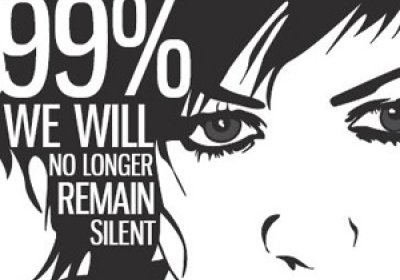The University of Sydney Political Economy Students Society released the statement below to explain its Save Political Economy campaign.
* * *
The Department of Political Economy is under threat of amalgamation into a school of Politics and International Relations. The School of Social and Political Sciences is undergoing a review. In the draft proposals for School restructuring, two of the four proposals result in Political Economy being amalgamated into a School or Department of Politics and International Relations, and losing academic and administrative independence.
899
The statement below was released by Socialist Alliance in Australia on October 14.
* * *
At a Madrid media conference called by the 15-M movement to announce Spanish actions for the October 15 global day of occupations, the media showed little interest in the international solidarity plans of the world’s founding indignado movement.
The journos wanted to talk about one thing: what would be 15-M’s attitude to the November 20 Spanish general elections? Abstention? Spoiling the ballot? A vote against the parties of “the political class”? A vote for parties closest to 15-M’s positions? And, if so, which parties?
The world is rising up. When we look around the globe we see people in motion. Revolutions in the Middle East and North Africa against brutal dictators, the movements against austerity measures in Europe and Britain, democratic and indigenous revolutions in Latin America, and the Occupy Wall Street protests spreading across the United States. Resistance is in solidarity with all these movements for change.
The determination of the WA government and transport minister Troy Buswell to close more than 720 kilometres of so-called Tier 3 railway lines in the state’s Wheatbelt has put it on a collision course with grain farming communities. It threatens to unleash a vast increase in heavy truck traffic and all the problems that go with it.
Walking around downtown Cairo on October 10, everything felt relatively normal ― if, perhaps, a little more tense than usual for post-January 25 Cairo.
That is, until I came across the wrecks of burnt out cars on the Corniche el Nil in Maspero, just north of Tahrir Square, being pulled apart by enterprising young men.
Venezuela’s socialist president Hugo Chavez has likened the Occupy Wall Street movement in the United States to Venezuela’s February 1989 Caracazo riots against neoliberal policies that are widely seen as the start of Venezuela's revolutionary process.
Chavez made the comments by phone on the television program Dando y Dando on October 5.
More than 300 people of all ages gathered in Adelaide on September 24 calling for concentrating solar thermal (CST) technology to replace Port Augusta’s ageing coal fired power stations.
The action was organised by several environment groups, including the Australian Youth Climate Coalition, the Climate Emergency Action Network, the Socialist Alliance, Resistance and the Young Greens. The crowd met in Adelaide’s Rymill Park and took to the streets in a colourful, rhythmic parade, featuring a moving solar thermal tower.
The Polynesian island nation of Tuvalu, in the Pacific Ocean, is facing a severe shortage of fresh water.
Australia Network News said on October 10 that a state of emergency had been declared and Tuvalu's disaster co-ordinator Sumeo Silu said there was only about three days of water left. Tuvalu is in the midst of a crippling drought and had no rain for months.
ANN said Australia and New Zealand would deploy a large desalination plant to the island, home to about 10,000 people.
More than 13 million people are facing extreme food insecurity in the Horn of Africa in Ethiopia, Somalia, Eritrea, Djibouti, Sudan, South Sudan, Uganda and Kenya.
Almost 30,000 children have already died in Somalia in 90 days.
Famines in the region have become common enough for the Western media response to be cliched. Out-of-context images and sound-bites depict hopeless Africans needing Western charity yet again, and references to conflict making the situation worse depict conflict as local failing that Western intervention may be able to remedy.
Salil Shetty, Amnesty International’s secretary-general, has slammed the Northern Territory intervention, saying that it is making the problems facing Aboriginal Australians worse, AAP reported on October 7.
He said the government’s “top-down externally driven” efforts to close the gap on Aboriginal socio-economic disadvantage were instead having the opposite effect”. Amnesty was appalled that current policies had in effect caused “forced evictions from their traditional homelands”.
What stance should the European left take towards the euro and its galloping crisis?
This issue, which began as a theoretical discussion among radical economists in late 2009, has increasingly acquired practical political urgency: left parties are being challenged to define their position in the face of rising popular resentment at governments forking out billions in taxpayer euros to bail-out banks and indebted “Club Med” countries.
- Previous page
- Page 2
- Next page








